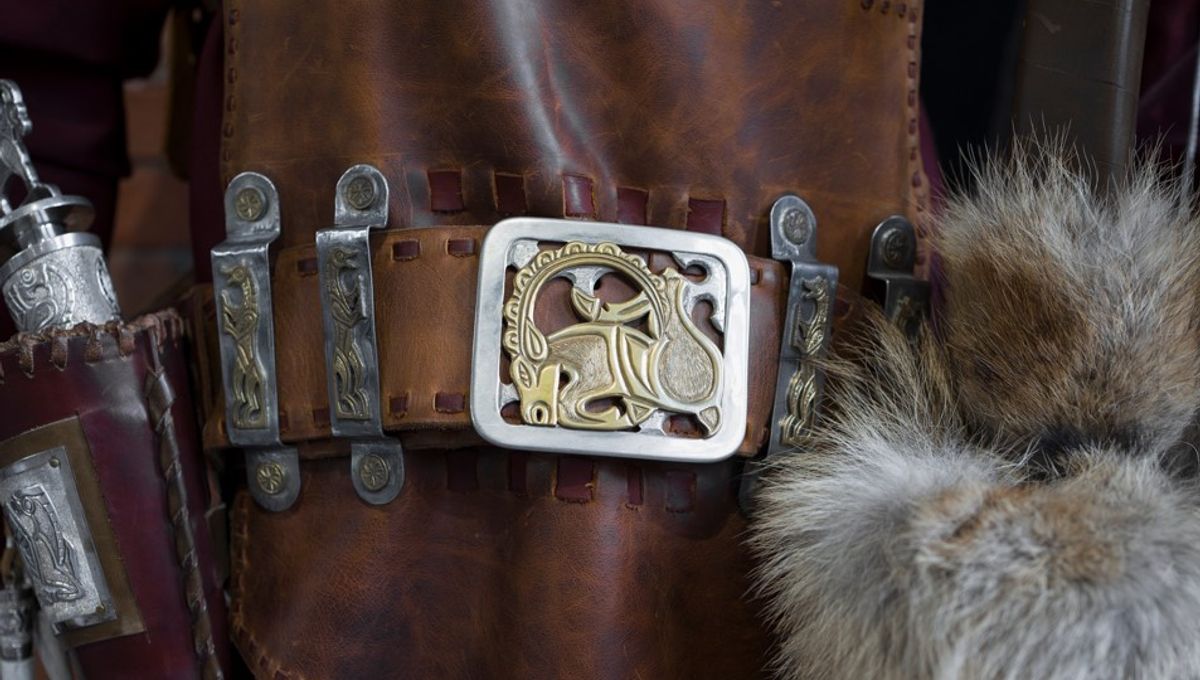
Little is known about the customs and daily life of the ancient Scythians, yet their reputation as fearsome warriors has endured for over 2,000 years. Confirming the nomadic culture’s place among the most terrifying historical badasses, researchers have now discovered that Scythian warriors carried their arrows around in leather quivers made from the skin of their defeated enemies.
Occupying the Pontic-Caspian steppe between roughly 700 and 300 BCE, the Scythians were a mysterious itinerant people who were renowned for their equestrian capabilities and military prowess. Though very few first-hand historical accounts exist from this period, the writings of the legendary ancient Greek historian Herodotus provide some gruesome insights into the Scythians’ battlefield antics.
For instance, Herodotus reported that the nomadic warriors regularly drank the blood of their enemies and used their scalps as hand towels. “Many too take off the skin, nails and all, from their dead enemies’ right hands, and make coverings for their quivers,” he wrote.
Until now, we had no option but to take Herodotus’ word for it, although the authors of a new study have finally provided scientific validation for these grizzly claims. Using a series of techniques to analyze the proteins in 45 leather samples recovered from 14 different Scythian sites in southern Ukraine, the researchers were able to identify the species from which each piece of skin was taken.
The vast majority of samples were found to have been made from sheep, goat, cattle, or horse skin, probably because these animals were all herded by the Scythians and therefore readily abundant. All four of these species also possess durable skin that is particularly suitable for the production of leather items.
However, two of the quivers analyzed by the researchers were found to contain pieces of leather derived from human skin.
“The surprise discovery is the presence of two human skin samples, which for the first time provide direct evidence of the ancient Greek historian Herodotus’ claim that Scythians used the skin of their dead enemies to manufacture leather trophy items, such as quiver covers,” write the study authors. These scraps of human leather were incorporated into quivers that also contained the skin of other animals, like a multi-species patchwork quilt.
“The more unusual, human and carnivore, leather appears to have been used in the top parts of the quivers,” explain the researchers.
“This may indicate that each archer made their own quiver using the materials available at the moment.”
The study has been published in the journal PLOS ONE.
Source Link: Ancient Scythians Made Leather From Human Skin - Likely Their Slain Enemies'